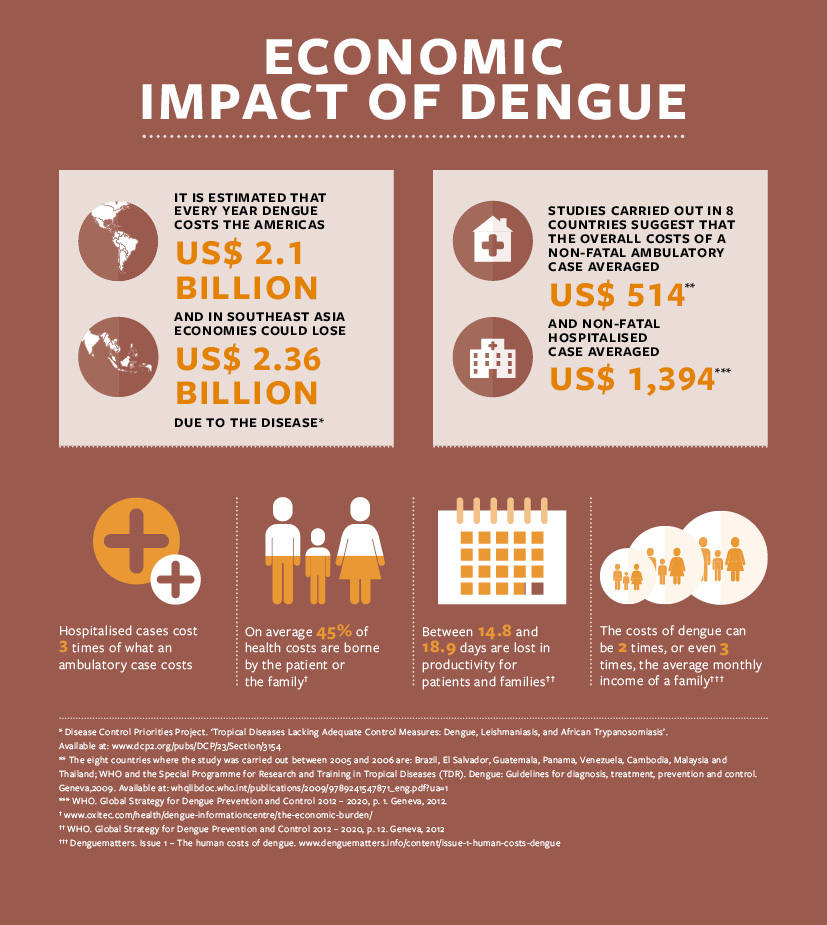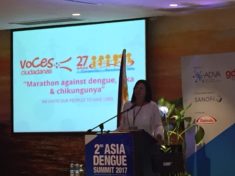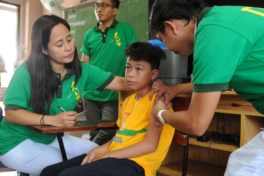- by Gary Finnegan
Marathon against dengue: passing the torch in the race against mosquito-borne diseases
A social mobilization campaign is recruiting communities, scientists and governments in a marathon against dengue, Zika, and chikungunya
Beating dengue is a challenge of Olympic proportions – but it’s a marathon, not a sprint. And it is a global race that requires collaboration between a network of stakeholders, according to Pilar Collantes, President of Voces Ciudadanas, a Peru-based organization building alliances between civil society and health authorities in Latin America and the Caribbean.
Collantes wants to bring together a broad coalition to fight diseases spread by mosquitoes. The ‘Marathon Against Dengue, Zika and Chikungunya’ campaign, led by Voces Ciudadanas, is a concerted effort to push-back against vector-borne infections. It begins from the premise that business-as-usual is not enough – the burden of mosquito-borne diseases has risen dramatically in recent decades. New thinking is needed.

Image courtesy of Malaria Consortium.
“We have to explore comprehensive, audacious and very participative alternatives that involve a higher commitment from the people, especially in schools and communities as well as local, regional and national authorities,” she says.
Collantes says the idea of a ‘marathon’ draws on the Greek myth of Pheidippides, a messenger who ran from Marathon to Athens to announce a great victory. Now, after years of painstaking research on dengue prevention, science is developing tools that can help stop dengue, Zika, and chikungunya in their tracks: vaccines, insecticides, and modern surveillance systems.
 “Today, the great race to prevent and control dengue is a reality,” she says. “We encourage states and the scientific community to work together with civil society to prevent these diseases.”
“Today, the great race to prevent and control dengue is a reality,” she says. “We encourage states and the scientific community to work together with civil society to prevent these diseases.”
Collantes took this message to the ASEAN Dengue Summit in the Philippines earlier this year to deliver the Torch of the Marathon Against Dengue, Zika, and Chikungunya to the Secretary of Health of the Philippines who embraced the dengue vaccine last year. “What the Philippines has been doing is extraordinary; we encourage them to continue and to broaden this effort to more children in their country.”
She says Voces Ciudadanas wants to emphasize that the arrival of a vaccine is “always excellent news” and cause for celebration. “But it is also necessary to promote its inclusion in the immunization schedules where dengue is endemic.”
That’s why the Philippines must also pass the torch – and its dengue control experience – to others in the region. 
Scientific evidence shows that community participation is an essential component in stemming outbreaks of vector-borne diseases, Collantes says. People of all ages have a role to play: Voces Cuidadanas leads a network of children and adolescents in Latin America and the Caribbean. It plans to invite adolescents from Asia Pacific to attend a future meeting.
“The Olympic torch symbolizes the light of knowledge and the delivery of life and hope, to thousands of communities,” she says. “We will unite the countries of the Asia-Pacific to promote the proactive participation of adolescents in the task of preventing vector-borne diseases like dengue, Zika, and chikungunya.”
Dengue in Peru
Dengue fever is a serious public health problem in Peru, says Collantes. “There are several provinces on the Peruvian coast where the number of cases has skyrocketed and the health systems are collapsing,” she says. “The number of dengue-related deaths is high.”
Voces Cuidadanas has been raising awareness of dengue – and how to combat it – through workshops, online social networks, and media interviews. “We believe that the people, including children and adolescents, can and must have a more active role in the prevention and control of dengue,” Collantes says.
The organization has also worked on immunization campaigns in Mexico, Brazil, Panama, Ecuador, Colombia, and Peru, promoting access to vaccines against HPV and hepatitis.
Read how ‘healthy blocks’ are building dengue-free neighborhoods in Argentina
Collantes says the organization is well placed to lead the marathon against dengue, Zika, and chikungunya. “Working on the prevention of one of these diseases in isolation reduces and disperses resources,” she says. “We have to make prevention a global goal, using all the available resources.”
In the race against dengue and other vector-borne diseases, there are many miles left to run.
—
Help experts better understand this disease, click below to report dengue activity near you.

